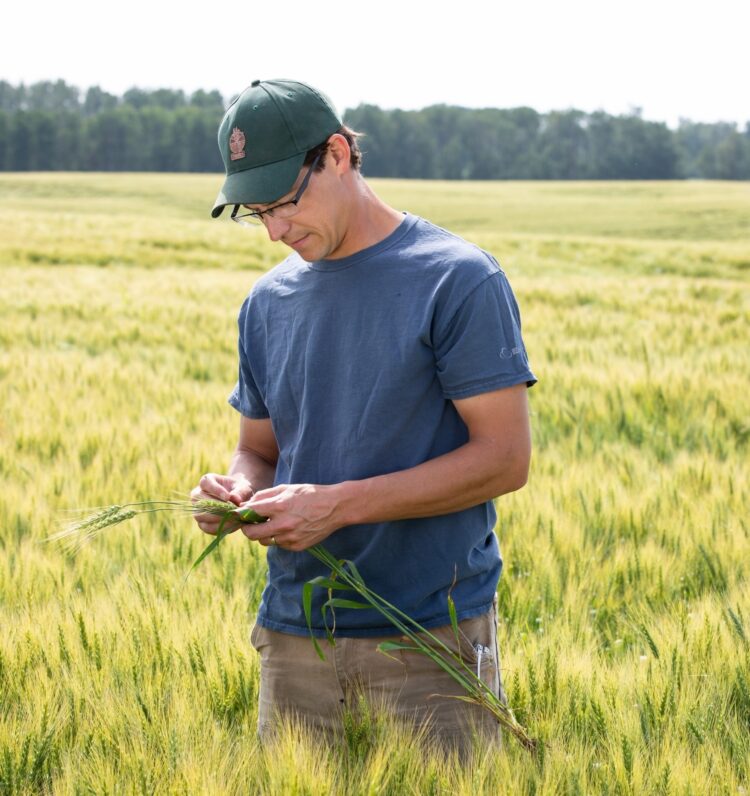The Risk of Prematurely Commercializing Food and Ag Products

Author: Brady Chapman
Tracking Darmar Farms Inc. v Syngenta Canada Inc.
Industry participants in Canada’s food and agriculture sector should keep an eye on Darmar Farms Inc. v Syngenta Canada Inc., 2019 ONCA 789 (“Darmar Farms”), as the Supreme Court of Canada (“SCC”) will soon decide whether or not to hear the case on appeal.
The SCC’s decision could determine whether a pure economic loss claim based on premature commercialization is a new risk for food and agriculture research and development companies.
Darmar Farms Inc.’s Class Action Claim
In Darmar Farms, Syngenta Canada Inc. and Syngenta AG (collectively, “Syngenta”) sold a new genetically modified strain of corn seed to producers. Although the new strain of corn was approved for sale in Canada and the United States, regulators in China had not yet approved it. Despite the lack of approval by Chinese authorities, Syngenta proceeded to commercialize the new strain across North America.
Several corn growers in North America grew Syngenta’s new strain of corn. The corn produced from the new strain was mixed with other corn and exported to China. Upon discovering the unapproved corn strain in the mixed corn, Chinese authorities barred large imports of North American corn, which led to the oversupply of corn in North America and a significant fall in corn prices.
Darmar Farms Inc. (“Darmar”) did not purchase nor grow Syngenta’s new strain of corn. However, Darmar alleged that the fall in corn prices caused the company to experience pure economic loss from Syngenta’s premature commercialization of the corn strain. Darmar proposed a class action lawsuit against Syngenta, pleading that Syngenta was negligent for commercializing the corn before receiving the required Chinese regulatory approvals.
The Lower Court Decisions
Darmar’s pure economic loss negligence claim from premature commercialization is novel. In the Ontario Superior Court, Darmar. admitted that “the duty of care arising from premature commercialization is… relatively unexplored and not yet determined.” Syngenta applied to dismiss Darmar’s claim on the grounds that the duty of care proposed by Darmar, and, in particular, the type of relationship that Darmar proposed between corn growers and Syngenta, does not exist.
The Ontario Superior Court judge agreed with Syngenta; she too took issue with the duty of care relationship that Darmar put forward in its claim. For this reason, among others, the judge dismissed Darmar’s proposed class action lawsuit.
The Ontario Court of Appeal (“ONCA”) unanimously overruled the Ontario Superior Court’s decision on this point. The three-judge panel found that the novelty of Darmar’s premature commercialization claim was not enough to strike the claim. The ONCA further held that Darmar has a reasonable, or at least arguable, prospect of showing that a duty of care exists between Syngenta and corn growers, such as Darmar.
The Application for Appeal to the SCC and its Potential Impact
On December 3, 2019, Syngenta appealed the ONCA decision to the SCC. All materials have been submitted to the Supreme Court of Canada by the parties in the action. The SCC will now determine whether or not to hear the case on appeal and is expected to render its decision soon.
The SCC’s decision on Darmar Farms will inform the duty of care that the court expects food researchers and developers to have with food producers across Canada. In particular, the decision will inform the duty of care that food researchers and developers have to food producers for the premature commercialization of agricultural products and emphasize the importance of receiving international approvals before a product is broadly commercialized.
If the SCC dismisses Syngenta’s application for appeal, it would suggest that the SCC approves of the ONCA’s decision and analysis, and Darmar would be permitted to proceed with its class action lawsuit. This could serve to make Darmar Farms an important precedent across Canada regarding pure economic loss class action suits from premature commercialization in the food and agricultural sector. Conversely, if the SCC decides to accept Syngenta’s application for appeal, the food and agricultural sector will need to continue waiting for the SCC to determine what it sees as the scope of the duty of care among food researchers and developers and food producers across Canada.
MLT Akins LLP continues to track decisions such as Damar Farms that may impact the food and agriculture sector across Canada. Our agriculture and food team is available to assist if you would like to discuss how this decision may impact your business.
Note: This article is of a general nature only. Laws may change over time and should be interpreted only in the context of particular circumstances such that these materials are not intended to be relied upon or taken as legal advice or opinion. Readers should consult a legal professional for specific advice in any particular situation.


